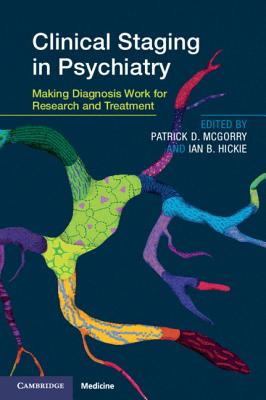This book integrates the concepts of big data analytics into mental health practice and research.
Mental disorders represent a public health challenge of staggering proportions. According to the most recent Global Burden of Disease study, psychiatric disorders constitute the leading cause of years lost to disability. The high morbidity and mortality related to these conditions are proportional to the potential for overall health gains if mental disorders can be more effectively diagnosed and treated. In order to fill these gaps, analysis in science, industry, and government seeks to use big data for a variety of problems, including clinical outcomes and diagnosis in psychiatry. Multiple mental healthcare providers and research laboratories are increasingly using large data sets to fulfill their mission. Briefly, big data is characterized by high volume, high velocity, variety and veracity of information, and to be useful it must be analyzed, interpreted, and acted upon. As such, focus has to shift to new analytical tools from the field of machine learning that will be critical for anyone practicing medicine, psychiatry and behavioral sciences in the 21st century.
Big data analytics is gaining traction in psychiatric research, being used to provide predictive models for both clinical practice and public health systems. As compared with traditional statistical methods that provide primarily average group-level results, big data analytics allows predictions and stratification of clinical outcomes at an individual subject level.
Personalized Psychiatry – Big Data Analytics in Mental Health provides a unique opportunity to showcase innovative solutions tackling complex problems in mental health using big data and machine learning. It represents an interesting platform to work with key opinion leaders to document current achievements, introduce new concepts as well as project the future role of big data and machine learning in mental health.
這本書將大數據分析的概念整合到心理健康的實踐和研究中。
心理障礙代表了一個驚人的公共健康挑戰。根據最新的全球疾病負擔研究,精神疾病是導致殘疾年數損失的主要原因。與這些疾病相關的高發病率和死亡率與如果能更有效地診斷和治療心理障礙所能帶來的整體健康收益的潛力成正比。為了填補這些空白,科學、產業和政府的分析尋求利用大數據來解決各種問題,包括精神病學中的臨床結果和診斷。多個心理健康護理提供者和研究實驗室越來越多地使用大型數據集來實現他們的使命。簡而言之,大數據的特徵是信息的高容量、高速度、多樣性和真實性,為了有用,必須進行分析、解釋和行動。因此,重點必須轉向機器學習領域的新分析工具,這對於在21世紀從事醫學、精神病學和行為科學的任何人來說都是至關重要的。
大數據分析在精神病學研究中正逐漸受到重視,並被用來為臨床實踐和公共健康系統提供預測模型。與主要提供平均群體水平結果的傳統統計方法相比,大數據分析允許在個體主體層面進行預測和臨床結果的分層。
《個性化精神病學 – 心理健康中的大數據分析》提供了一個獨特的機會,展示利用大數據和機器學習解決心理健康中複雜問題的創新解決方案。它代表了一個有趣的平台,可以與關鍵意見領袖合作,記錄當前成就,介紹新概念,以及展望大數據和機器學習在心理健康中的未來角色。





















